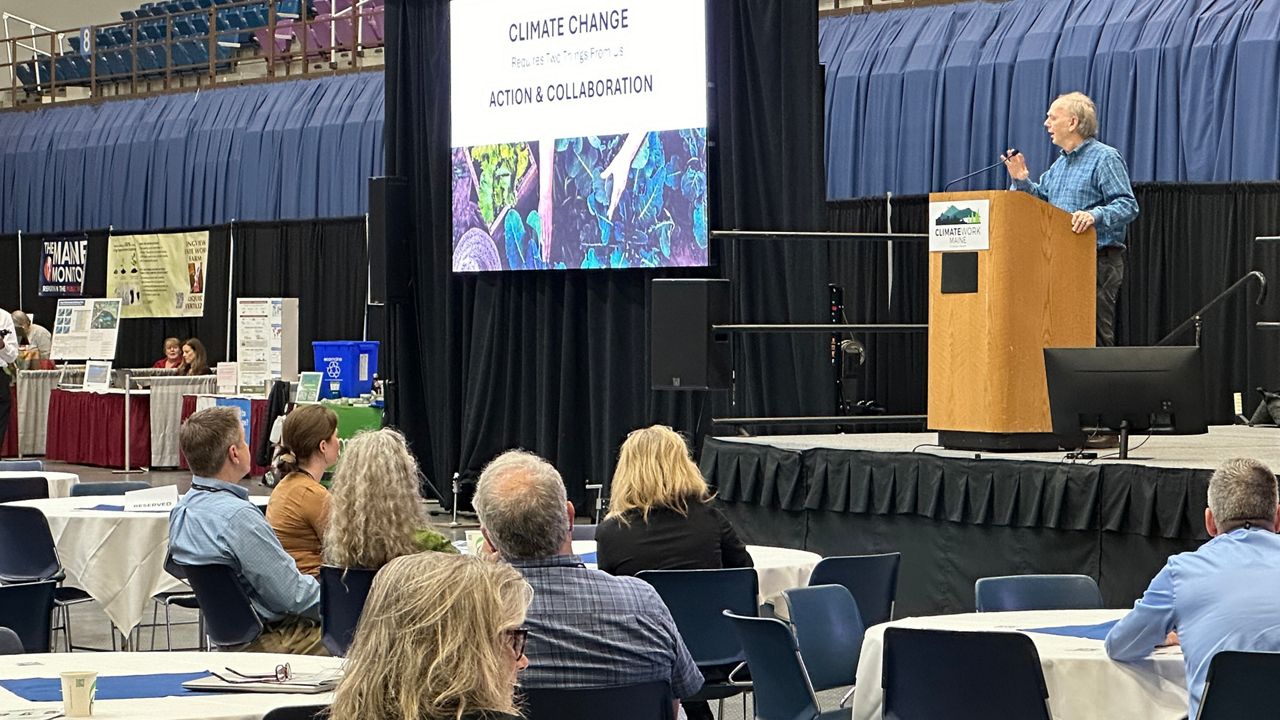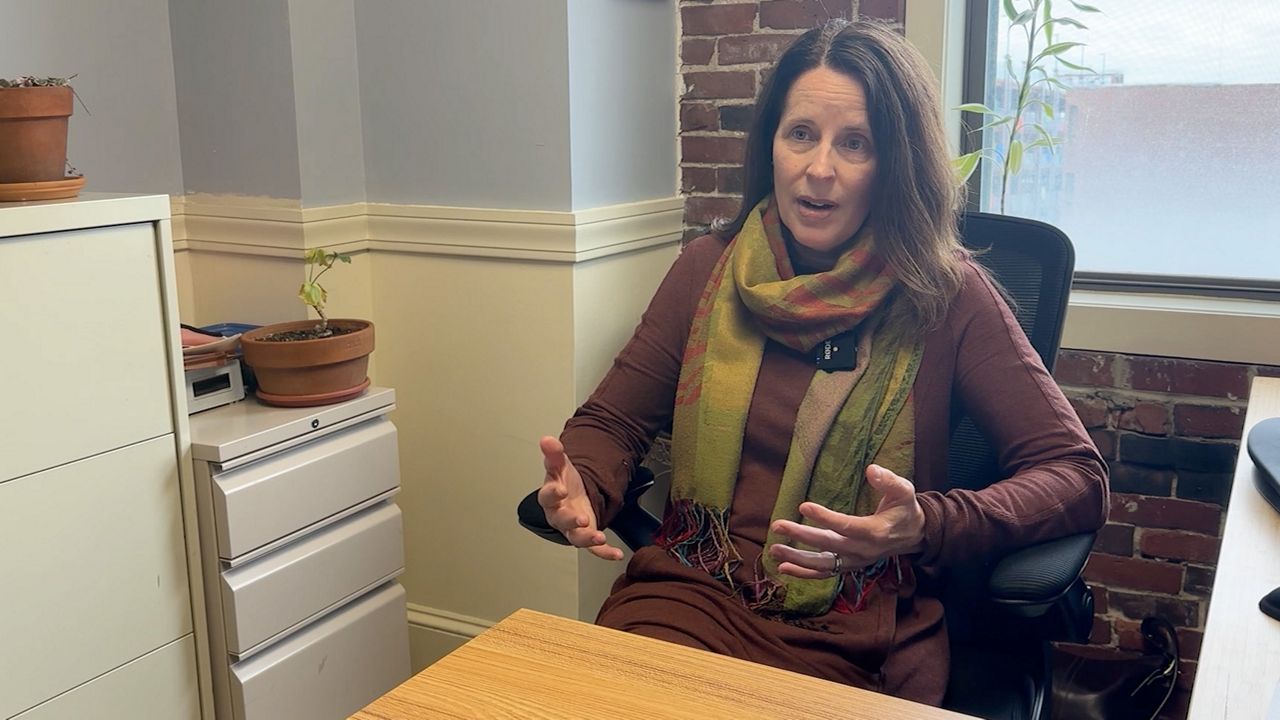The CEO of Central Maine Power said Thursday that the state will soon enter an “electrification revolution” as more people tap into solar and wind power, switch to heat pumps and drive electric vehicles.
The key will be upgrading the system to keep up with fast-changing technology and increased demand, Joe Purington said during a panel discussion at ClimateWork Maine’s Summit on Maine’s Economy and Climate Change.
“This country went through an Industrial Revolution a time ago,” Purington said. “I think Maine’s going to go through an electrification revolution and when 2040 comes, I hope people will look back at this time and say ‘you know what, Mainers found a way to get their act together’ and position us for success in the future.”
Maine has set a goal of being 100% fueled by clean energy by 2040, which will mean switching away from fossil fuels.
Celina Cunningham, deputy director of the Governor’s Energy Office, said state officials will be looking to make sure the workforce has the skills needed to meet new job demands.
That will mean “training additional workforce in the clean energy space.”
Nearly 500 people attended the summit organized by ClimateWork Maine, a nonprofit that seeks to help businesses take action to reduce the impacts of climate change.
Alan Caron, the group’s founder, said getting environmentalists and business owners in the same room will help build relationships as the state looks for ways to combat climate change.
“The idea is to begin to think in a new way,” he said. “It’s not, ‘how do I beat the other side’, it’s ‘how do we lock arms and make something happen?’”
In recent years, Maine has been ground zero when it comes to major battles over energy projects.
CMP spent years fighting in court and at the ballot box over a $1 billion project to build a 145-mile transmission line through Maine to bring Canadian hydropower to the New England grid.
In 2021, voters rejected the project, but a court ruling last year cleared the way for CMP to build the line.
Then last year, a group called Pine Tree Power called for the dissolution of CMP and Versant Power, which serves northern and eastern Maine. The proposal, which was rejected by voters, sought to put in place a nonprofit to run the electrical grid.
And in December, state regulators terminated an agreement with a developer who sought to build new lines to bring electricity from a wind farm in Aroostook County to a substation in central Maine when the company could not hold its price.
These examples point to the need for a clear permitting process, said Patrick Woodcock, CEO of the Maine State Chamber of Commerce.
“Open minded is not how I start off with describing the Maine culture,” Woodcock said. “We kind of love the status quo. We love this beautiful state.”
But he’s convinced that to address climate change and keep up with future demand, major electrical infrastructure projects are necessary.
A major part of getting to clean energy by 2040 will be the development of an off-shore wind port to support a floating off-shore wind array, said Jack Shapiro, climate and clean energy director for the Natural Resources Council of Maine.
“Floating offshore wind is an enormous potential area for Maine to lead,” he said. “That’s just one example of how we can, not just do what we need to do to address climate change, but to do it right together.”
Shapiro said companies and the state need to do a better job building trust with the public before these types of projects move forward. That includes demonstrating the benefits to communities and the climate and upholding certain standards for workers, he said.
“It’s not something where we should expect people to walk away from some of those values,” he said.
Purington said CMP is working to build relationships with the public so they can better explain why the company is pursuing major projects.
“We need to be out there,” he said. “Our faces need to be out there with all of our stakeholders and our customers. They need to know who we are.”










